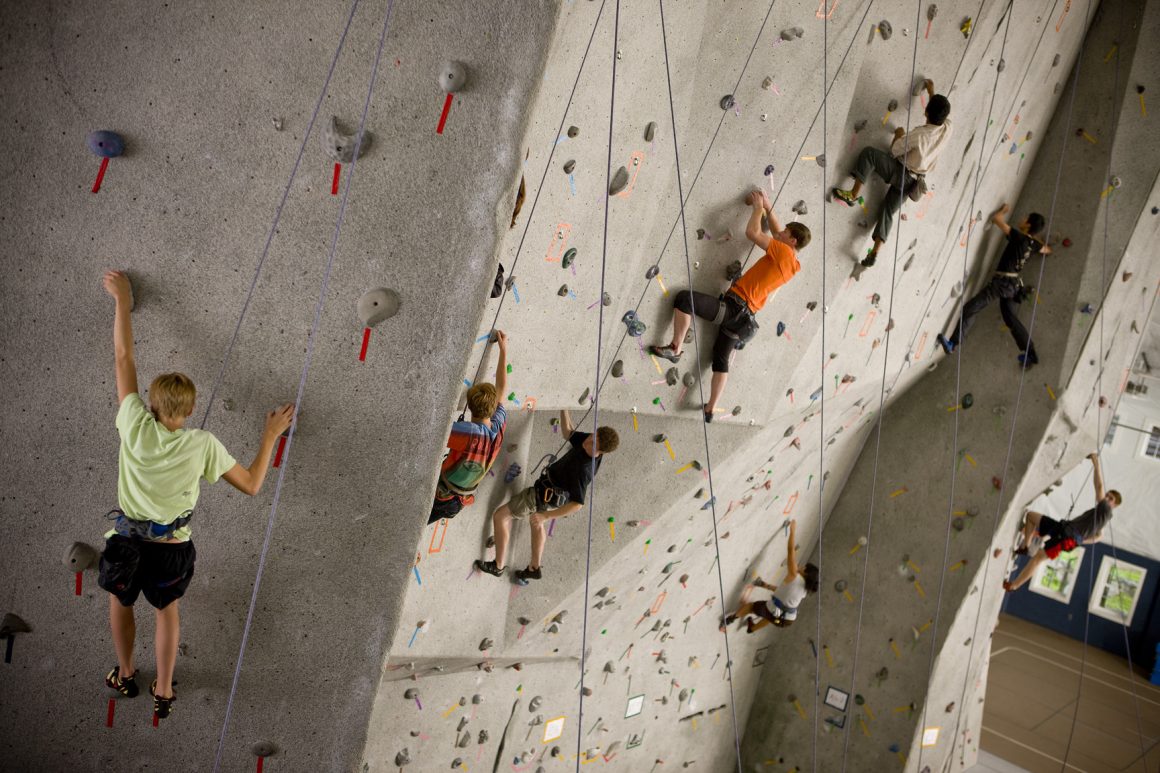
Rock climbing to receive its Olympic debut in the Tokyo 2020 Summer Games
By Danielle Grant, March 9 2018 —
Last month, Bolder Climbing Community in Calgary’s southwest hosted the Alberta Open Bouldering Championships. House music boomed through the facility and spotlights illuminated competitors as they scaled the walls with impressive athleticism. Due to popular interest, the event was even livestreamed. Competitive and recreational climbing have recently gained significant, global mainstream popularity. This will likely only grow with its Olympic debut in Tokyo 2020, which will feature a completely new event format in the realm of competitive climbing.
Rock climbing consists of numerous disciplines. Traditional climbing grew out of mountaineering and utilizes ropes and harnesses to scale natural grooves of a rock face. Outdoor sport climbing involves following a route bolted onto rocky surfaces. Indoor lead climbing is similar but is performed on artificial structures. Speed climbing challenges athletes to sprint up standardized indoor routes and demands incredible coordination. Bouldering doesn’t require ropes or safety equipment and is generally kept closer to the ground.
The three major disciplines showcased in the 2020 Games are indoor lead climbing, speed and bouldering. While this seemingly invites a diverse range of climbers, there’s a catch — all three discipline will be combined into one overarching event, leaving climbers reaching for one medal. Rather than dividing the events, as is tradition in climbing competitions, each of the 20 men and 20 women competing will tackle each route separately, with the highest overall scorers taking gold. This is currently unheard of in the climbing community.
The International Federation of Sport Climbing initially proposed that eight medals be awarded to the champions of each discipline. Most elite climbers specialize in one area with occasional crossover but competing in multiple is rare. This has stirred a lot of controversy in the professional climbing community. According to BBC, two-time Bouldering World Cup champion Shauna Coxsey claimed combining the events is “like asking Usain Bolt to run a marathon and then do hurdles.”
Climbing’s inclusion in the Tokyo 2020 Games is meant to entice younger audiences, attract sponsorship and push international exposure. While the multi-event structure is a change and huge challenge for athletes, it was a calculated effort by the Olympics to prevent one discipline from garnering more attention and overshadowing the others.
Apart from the event’s problematic design, many are also hesitant about climbing in the Olympics for more fundamental and personal reasons. At its core, climbing is a mountain sport that beckons an adventurer’s spirit. Some fear the heavy regulation of many Olympic events will impact the freedom and creativity characteristic of climbing, presenting the sport inauthentically. However, this puritanical view is not unique to climbing. The debut of other ‘unconventional’ sports in the 2020 Games, such as surfing, are being challenged by athletes who believe the tournament’s principles contradicts the fibre of their sport.
Despite opposing views, climbing will debut in Tokyo 2020, exposing it to a vaster audience. Some of Canada’s competitors will likely come from Alberta, as the Rocky Mountains backdropping our province have cultivated an entrenched and skilled community of climbers. The new Calgary Climbing Centre opening this spring is also rumoured to be an Olympic training gym, making our city a potential hub for an entirely new crop of Olympic superstars for us watch in Tokyo 2020.
